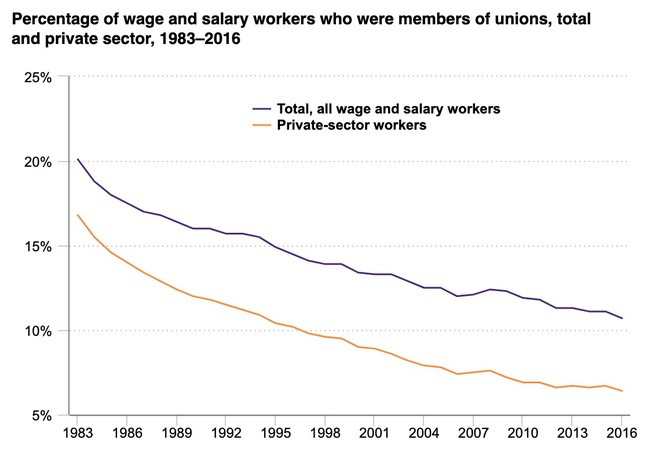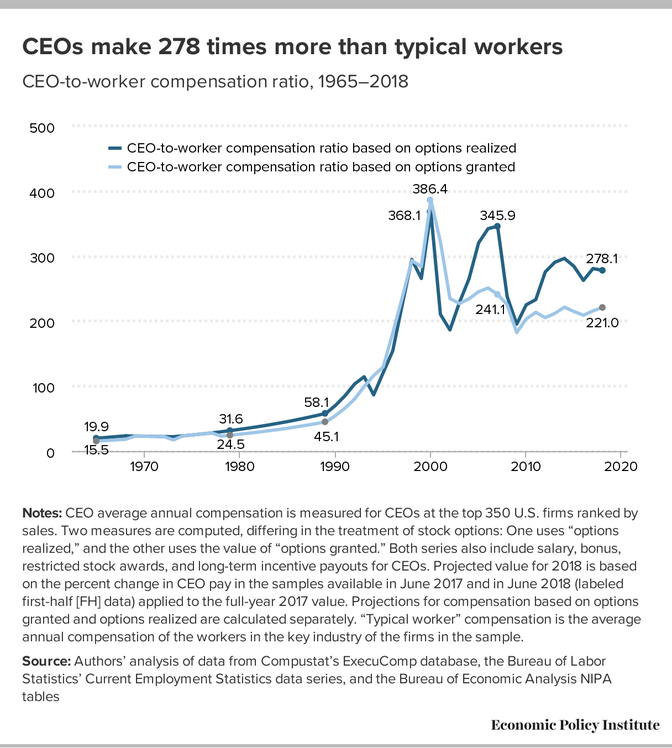How McKinsey Destroyed the American Middle Class (excerpt from Atlantic


We offer you some excerpts from an interesting, and long, article in the Atlantic magazine, which analyzes the role of management consulting firms, McKinsey in the lead, in the evolution of the US economy, and how these have led to a social extremization. The new concepts of corporate structure, obtained from the destruction and cancellation of middle managers and from the precariousness of work, have resulted in the cancellation of a social class that, on the one hand, was intermediate in terms of income (middle management, skilled workers, etc.), from 'other has also deleted a part of the corporate structure that was used to compensate for any mistakes by the CEO. The result is the concentration of power at the top, which however also includes the possibility of making mistakes, on the other hand the destruction of a social stratum that stabilized and unified US society for 70 years of the last century. If you see similarities with Italy, perhaps you are right.
Happy reading, and for the overall piece go to this link .
Management consultants advise managers on how to manage companies; McKinsey alone serves the management of 90 of the 100 largest companies in the world. Managers do not produce goods or provide services. Instead, they plan what goods and services a company will supply and coordinate the production workers who make the output. Since complex goods and services require a lot of planning and coordination, management (even if it is only indirectly productive) adds a lot of value. And managers as a class acquire much of this value as pay. This makes the question of who will become a manager extremely consequential.
Then it is described how, up to the 1960s, the climb to the top of the company was essentially internal to the company, with a gradual selection up to the top and the possibility of working for life for the same company, perhaps even stopping at intermediate levels.
Things changed in the 1960s, with McKinsey as the powerplant. In 1965 and 1966, the company ran assistant request ads in the New York Times and Time magazine, with the aim of generating applications that would then be rejected to establish their elite. McKinsey's competitors followed suit, as when Bruce Henderson of the Boston Consulting Group ran ads in the Harvard Business School student newspaper trying to hire "not just the mundane but, instead, academics: Rhodes Scholars, Marshall Scholars, that's 5% best in class. "
The new ideal of shareholder primacy, strongly supported by Milton Friedman in a 1970 New York Times Magazine article titled "Corporate Social Responsibility Is Increasing Your Profits," has given ambitious new management consultants a focus on their work. .
According to this ideal, in the language possibly adopted by the Business Roundtable, “the fundamental duty of management and the boards of directors is towards the shareholders of the company”. During the 1970s, and accelerating into the 1980s and 1990s, most modern management consultants pursued this duty by expressly and relentlessly targeting middle managers, who had dominated mid-century companies and whose wages weighed on company profit ".
As business journalist Walter Kiechel put it in his book Lords of Strategy, consultants were openly seeking to "foster stratification within companies and society" by concentrating the management function on elite executives, aided (obviously) by consultants. of the same files as consultants.
Management consulting firms have implemented a set of processes and tools against middle management. Another industry report, The Witch Doctors, explains that the consulting arm of the Computer Sciences Corporation, in collaboration with the Sloan School of Management at MIT, developed the concept of corporate "reengineering", to "break down an organization into its parts. components ”, eliminate the redundant ones, ie the intermediate panels, then put the remaining parts back together“ to create a new machine ”.
GTE, Apple, and Pacific Bell all used reengineering to drive their downsizing. McKinsey defined his path to downsizing, which the company called “general value analysis,” as a response to the mid-century company's over-reliance on middle management. As McKinsey's John Neuman admitted in an essay introducing the method, the “process, while quick, is not painless. Since overheads are typically 70% to 85% people-related and most of the savings come from shrinking the workforce, cutting overheads requires some tough decisions. ”
Production workers did not escape the whirlwind, as companies, again with the help of consultants, deprived them of their residual management functions and the benefits that these entailed. Companies have broken up their unions and jobs that once carried a bright future have turned bleak. United Parcel Service, long famous for its full-time workers and promotion from within, began to emphasize part-time work in 1993. Its union, the Teamsters, attacked in 1997, with the slogan " Part-time America won't work, ”but it failed to bring the company back to its previous employment practices. Since then UPS has hired more than half a million part-time workers, with only 13,000 advancements within the company.
Overall, the share of private sector workers belonging to a union fell from about a third in 1960 to less than a sixteenth in 2016. In some cases, the downsized employees were hired as subcontractors, without long-term claims companies. and no role in their management. When IBM fired masses of workers in the 1990s, for example, it hired one in five as consultants. Other companies have been built from scratch on a subcontracting model. The United Colors of Benetton clothing brand has only 1,500 employees but employs 25,000 workers through subcontractors.

The transition from permanent to precarious work still continues at a rapid pace. Buttigieg's work at McKinsey included a commitment to Michigan's Blue Cross Blue Shield, during a time when he considered cutting up to 1,000 jobs (or 10 percent of his workforce). And the gig economy is just a high-tech generalization of the subcontractor model. Uber is a more extreme Benetton; it deprives drivers of any role in planning and coordination and literally has no corporate hierarchy through which drivers can rise to become part of management.
As always, consultants are at the forefront of change, with the aim of breaking the intermediate management chain. A new generation of management consulting firms now implement algorithmic processing to automate not the jobs of line workers or sales people, but the work of the manager. (So everyone is a slave to the algorithm, Ed.)
In fact, management consulting is a tool that allows companies to replace lifelong employees with short-term, part-time and even subcontracted workers, hired under increasingly tightly controlled agreements, who sell particular skills and even certain products, and who they do not manage anything.
Read: 9.9% is the new American aristocracy
The managerial management function has not been rendered useless, of course, nor has it disappeared. Instead, the private managerial control of middle management and production workers has been concentrated in a small group of executives who monopolize planning and coordination. Democratic mid-century management empowered ordinary workers and powerless elite executives, so that a bad CEO could do little to harm a company and a good little to help it. Today, top executives boast immense leadership powers and, as a result, get virtually all of the economic returns of management. While in the middle of the century a typical CEO of a large company was earning 20 times the income of a production employee, today's CEOs earn nearly 300 times as much. In a recent year, the five highest-paid employees of the S&P 1500 (7,500 elite executives in total), made an income equal to about 10% of the total profits of the entire S&P 1500.

Management consultants insist that meritocracy required the restructuring they encouraged – that, as Kiechel put it dryly, “ we are not all together in this; some pigs are smarter than others and deserve more money ”. In this way, consultants seek to legitimize both job cuts and the explosion of elite pay. Well understood, corporate reorganizations were, therefore, not only technocratic but ideological. Rather than simply improving management, to make American companies lean and efficient, they have promoted the hierarchy, making management, in David Gordon's memorable phrase, "fat and mean".

Thanks to our Telegram channel you can stay updated on the publication of new articles of Economic Scenarios.
The article How McKinsey destroyed the American middle class (excerpt from Atlantic comes from ScenariEconomici.it .
This is a machine translation of a post published on Scenari Economici at the URL https://scenarieconomici.it/come-mckinsey-ha-distrutto-la-classe-media-americana-estratto-da-atlantic/ on Sat, 06 Mar 2021 12:03:12 +0000.
